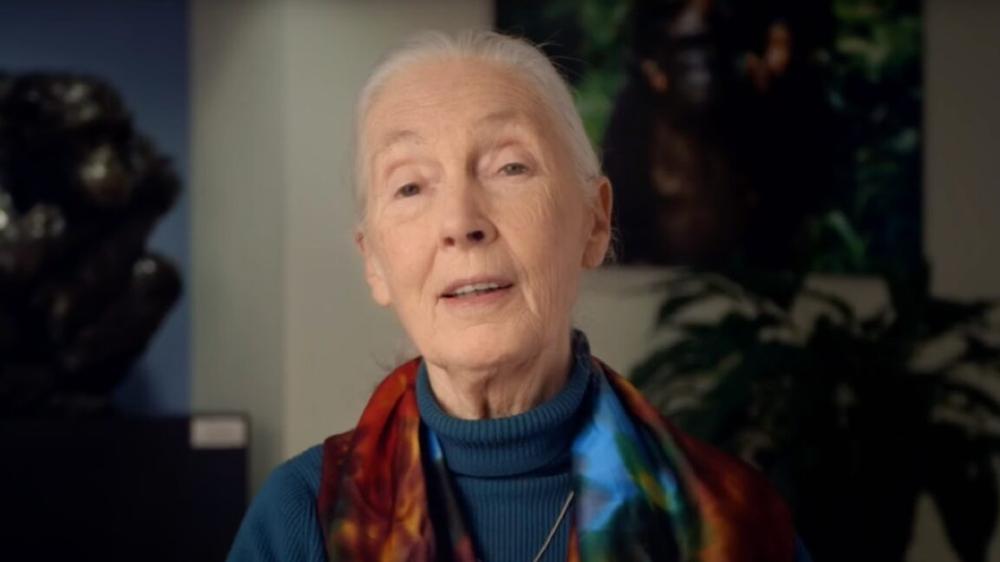Legendary primatologist Jane Goodall, whose immersive field research living among chimpanzees in the 1960s essentially redefined the relationship between humans and animals, has died at the age of 91. According to the Jane Goodall Institute (JGI), Goodall died of natural causes while in California as part of a US speaking tour.
"Jane was passionate about empowering young people to become involved in conservation and humanitarian projects and she led many educational initiatives focused on both wild and captive chimpanzees," the institute wrote in a statement. "[Her] discoveries as an ethologist revolutionized science. She was always guided by her fascination with the mysteries of evolution, and her staunch belief in the fundamental need to respect all forms of life on Earth."
Born in April 1934, Goodall loved nature and wildlife from a very young age, so much so that her father once gave her a stuffed monkey doll that young Jane named Jubilee and kept for the rest of her life. Goodall found an early mentor in paleoanthropologist Louis Leakey, who employed her as a secretary at the National Museum in Nairobi. She accompanied Leakey and his wife, Mary Leakey, on a hunt for fossils at the Olduvai Gorge. Impressed with the young woman's potential, Leakey sent her to Tanzania to study chimpanzees in the Gombe forest. He also arranged for her to enter the PhD program in ethology at Cambridge University; Goodall completed her PhD in 1965 with a thesis based on that initial Gombe study. The research program she founded is still active today.
Goodall's approach to studying chimps was controversial because she defied the traditional practice of numbering the animals, giving them names instead, which many in what was then a male-dominated field thought demonstrated a lack of objectivity. Leakey, however, found her insights valuable. His faith in his protégé was rewarded in 1960 when Goodall observed a chimp named David Greybeard bend a twig, strip off the leaves, and use it to spoon termites out of a nest and into his mouth. Until then, researchers had assumed that humans were the only ones capable of tool use. When he learned of the behavior, Leakey famously observed, "Now we must redefine 'tool,' redefine 'man,' or accept chimpanzees as humans."
David Greybeard's behavior also challenged the long-held assumption that chimpanzees were vegetarians. Goodall found that chimps would hunt and eat smaller primates like colobus monkeys as well, sometimes sharing the carcass with other troop members. She also recorded evidence of strong bonds between mothers and infants, altruism, compassion, and aggression and violence. For instance, dominant females would sometimes kill the infants of rival females, and from 1974 to 1978, there was a violent conflict between two communities of chimpanzees that became known as the Gombe Chimpanzee War.
Almost human
One of the more colorful chimps Goodall studied was named Frodo, who grew up to be an alpha male with a temperament very unlike his literary namesake. "As an infant, Frodo proved mischievous, disrupting Jane Goodall's efforts to record data on mother-infant relationships by grabbing at her notebooks and binoculars," anthropologist Michael Wilson of the University of Minnesota in Saint Paul recalled on his blog when Frodo died from renal failure in 2013. "As he grew older, Frodo developed a habit of throwing rocks, charging at, hitting, and knocking over human researchers and tourists." Frodo attacked Wilson twice on Wilson's first trip to Gombe, even beating Goodall herself in 1989, although he eventually lost his alpha status and "mellowed considerably" in his later years, per Wilson.
Goodall became so renowned around the world that she even featured in one of Gary Larson's Far Side cartoons, in which two chimps are shown grooming when one finds a blonde hair on the other. "Conducting a little more 'research' with that Jane Goodall tramp?" the caption read. The JGI was not amused, sending Larson a letter (without Goodall's knowledge) calling the cartoon an "atrocity," but their objections were not shared by Goodall herself, who thought the cartoon was very funny when she heard of it. Goodall even wrote a preface to The Far Side Gallery 5. Larson, for his part, visited Goodall's research facility in Tanzania in 1988, where he experienced Frodo's alpha aggressiveness firsthand.
Goodall founded the JGI in 1977 and authored more than 27 books, most notably My Friends, the Wild Chimpanzees (1967), In the Shadow of Man (1971), and Through a Window (1990). There was some initial controversy around her 2014 book Seeds of Hope, co-written with Gail Hudson, when portions were found to have been plagiarized from online sources; the publisher postponed publication so that Goodall could revise the book and add 57 pages of endnotes. (She blamed her "chaotic note-taking" for the issue.) National Geographic released a full-length documentary last year about her life's work, drawing from over 100 hours of previously unseen archival footage.
Right up until her death, Goodall spent as many as 300 days a year traveling around the world as an advocate for chimpanzees and the environment, accompanied by her toy monkey, Mr. H, a gift from a friend some 30 years ago. "She gave up doing what she loved—spending time with her beloved chimpanzees—to share her passion with everyone she met," University of St Andrews primatologist Cat Hobaiter told the BBC. "Jane would be the first person to tell us that what the world needs right now is not sadness over her loss but to get to work. We all have a lot to be getting on with to make sure that we are not the last generation to live alongside wild chimpanzees."
Actor Leonardo DiCaprio, who served with Goodall as UN Messengers of Peace and co-produced a film about wolves (Howl) with her, also expressed his sense of loss at Goodall's passing. "Today we have lost a true hero for the planet, an inspiration to millions, and a dear friend," he wrote on Instagram. "Jane Goodall devoted her life to protecting our planet and giving a voice to the wild animals and the ecosystems they inhabit. Her groundbreaking research on chimpanzees in Tanzania transformed our understanding of how our closest relatives live, socialize, and think—reminding us that we are deeply connected not only to chimpanzees and the other great apes, but to all life."
Goodall was married twice, first to Dutch nobleman and wildlife photographer Baron Hugo van Lawick (1964–1974). She married Tanzania member of Parliament Derek Bryceson, director of the country's national parks, in 1975; he died of cancer in 1980. Goodall is survived by her son, Hugo Eric Louis van Lawick (who she nicknamed "Grub"); her three grandchildren, Merlin, Angel, and Nick; and her sister, Judy Waters.

 Borderlands 4 Patch Makes Big Balance Changes, With All Vault Hunters Getting Buffs
Borderlands 4 Patch Makes Big Balance Changes, With All Vault Hunters Getting Buffs